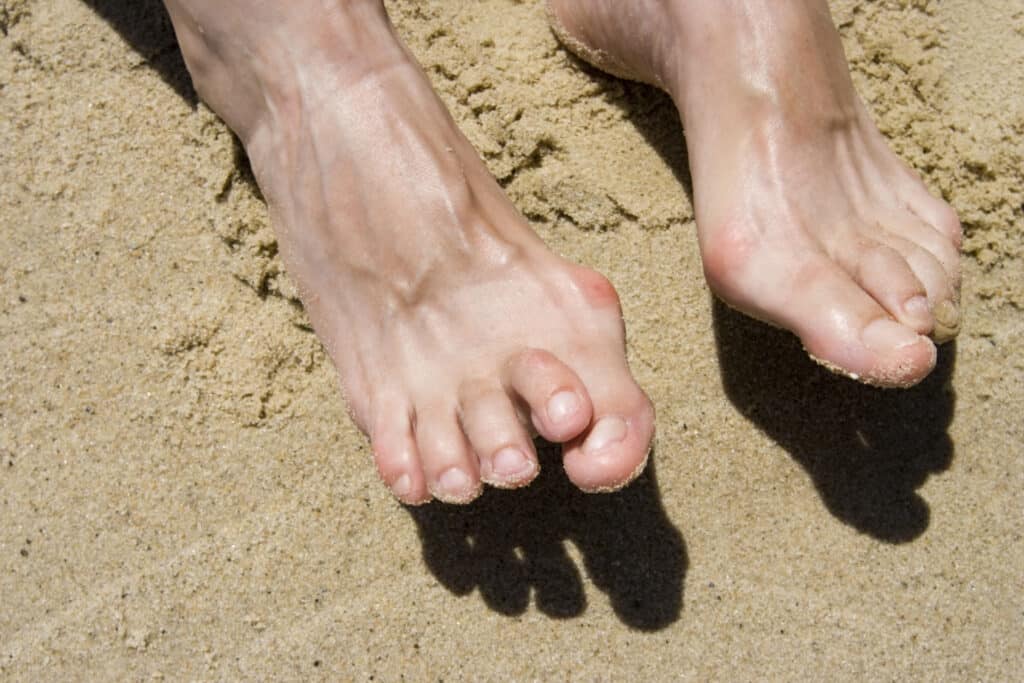Hammertoe is a common toe deformity that causes one or more toes to bend downward at the middle joint. It often starts gradually, and for many people, it becomes more noticeable and uncomfortable over time. While shoes are a frequent culprit, inherited traits and foot mechanics also contribute to the problem.
Our board-certified orthopedic surgeons at OIBortho work with patients throughout Ocean and Monmouth County to treat this common foot deformity. We have locations in Edison, Red Bank, Freehold, Wall, Brick, Toms River, Lacey, and Manahawkin.
The Role of Genetics
Some people are simply more prone to hammertoe because of inherited traits. For example, if you were born with a long second toe, flat feet, or naturally tight tendons, you may be more likely to develop the condition. These features can change the way your toes function and how pressure is distributed when you walk. If your parents or siblings have hammertoe, your risk may be higher.
Shoes Can Make It Worse
Wearing tight, narrow shoes or high heels puts your toes in an unnatural position. Over time, this can force the toe joints to bend and stay that way.
The more often your toes are cramped, the more strain is placed on the tendons, which can lead to permanent deformity. Although hammertoe can develop without poor footwear, the wrong shoes can speed up the process or worsen existing symptoms.
Foot Structure and Biomechanics
Your unique foot shape also matters. People with flat feet or high arches often experience muscle imbalance in the toes, which can lead to hammertoe.
If one toe is much longer than the others, that toe tends to absorb more pressure and friction, which increases the chance of joint issues. These structural factors can gradually shift toe alignment, especially if combined with repetitive stress or improper support.
Talk to a Specialist
Hammertoe doesn’t fix itself, but it can be managed. Our orthopedic foot specialists at OIBortho have experience treating a wide range of toe and forefoot conditions, from early-stage deformities to more advanced cases. Call 732-800-9000 to schedule a consultation at any of our New Jersey locations.
